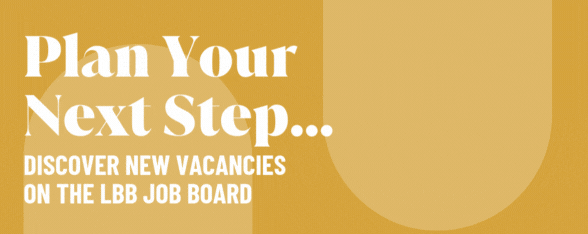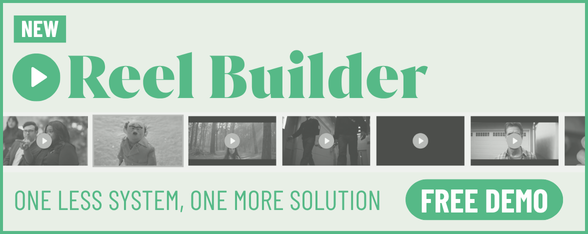
Meet Your Makers: Every Experience Is a Valuable Lesson with Kit Yee Chow

Kit Yee Chow has been a producer in both advertising agencies and production houses, accumulating extensive experience across the production landscape, from technical know-how to the processes of commercial productions and filmmaking.
In addition to her in-depth production knowledge, she has a strong understanding of the global, regional, and local production landscape. Kit was part of the production team that created videos which went on to win at the D&AD Awards (Yellow Pencil) as well as numerous GONG Awards.
She believes the most significant difference she brings to the table is her ability to provide creative input and solutions, beyond simply delivering the basic requirements of a producer. Another of her strengths is her attention to detail and obsessive note-taking. Last but not least, many have told her that she possesses a can-do, positive spirit that not only brings joy but also instils confidence in those around her.
LBB> What first attracted you to production - and has it been an industry you’ve always worked on or did you come to it from another area?
Kit> I’ve always had an interest in marketing and communications, although that was not what I eventually studied and centred my education on. Upon graduation, I landed an opportunity to intern under the broadcast department in an ad agency. I fell in love with the job and the rest is history. ☺
LBB> What was your first role in the production world and how did this experience influence how you think about production and how you grew your career?
Kit> I started as an intern with the broadcast team at an ad agency and progressed to a junior producer during my time there. I found the entire process of bringing creative scripts and ideas to life through films and print both fun and rewarding.
However, at some point, I felt that being an agency producer didn’t allow me to fully experience the intricacies of production and filmmaking. I wanted to be fully engaged in the process and learn what it truly takes to produce films, as I believed this was necessary for my career progression and growth.
LBB> How did you learn to be a producer?
Kit> Through the projects I worked on, I got to know an incredible director, who has since become quite well-known in our region. He offered me a job at his production company as a director’s assistant. Eventually, I pivoted to a producer role there, as I felt it better suited my strengths.
There was no better way to learn to be a producer than being thrown into projects and learning on the job. The learning curve was very steep, especially since I had no production background or training, but I managed with the help and guidance of my team. My fellow producers and colleagues from the directorial teams rallied around me, providing support, encouragement, and assistance where they could.
I believe a big part of being a producer is knowing how to solve problems and overcome challenges, whether it's finding 'unicorn' locations and talent or devising innovative and cost-effective ways to achieve impressive shots within limited time and budget constraints. Having this can-do spirit and mindset has been crucial to my development and success as a producer.
LBB> Looking back to the beginning of your career, can you tell us about a production you were involved in where you really had to dig deep and that really helped you to grow as a producer?
Kit> Another project I recall was for a brand film for quick-service restaurant. On that shoot, it felt that everything that could go wrong, went wrong.
The gaffer and his key grip that were supposed to come from overseas did not turn up on the day of shoot.
And along with them, lighting equipment that they were supposed to carry (turned out, the brother duo had a sudden death in their family and could not make the job).
My production runner overslept and did not turn up for the shoot on time, and with him was all the production equipment we needed for the shoot.
Weather wasn’t in our favour for some of the outdoor scenes.
It felt like absolute chaos on set trying to manage the challenges while finding replacements and making sure the situation was not panicking the clients. I had to think on my feet to find quick and creative solutions to overcome the hurdles.
Thankfully, everyone in the production team were understanding and skilled enough to pivot and rise to the challenges we all faced. The film turned out beautifully and is one that I am still very proud of.
That project taught me that life will always find a way, no matter how bleak and difficult the situation may be. We just need to make the best out of whatever situation we are in and embrace these ‘failures’ for the experience they provide. As a producer, the curveballs from projects after didn’t faze me quite so much anymore!
LBB>A good producer should be able to produce for any medium, from film to events to digital experience. Do you agree or disagree with this statement? Why/why not?
Kit> Yes and no. I believe the soft skills acquired in traditional production, such as film and key visuals, can easily be applied to events and activations. A significant part of producing involves problem-solving and finding the right experts for a project.
However, event management is an entirely different field from filmmaking, and it can take years to gain the experience needed to excel in it.
LBB> What’s your favourite thing about production and why?
Kit> Being on set and seeing all those weeks of hard work on prep being paid off! The hustle and bustle of various departments doing what they do best is also exciting.
LBB> How has production changed since you started your career?
Kit> Production has changed significantly with the advent of digital technology. The process has become faster and more efficient, with new tools and software streamlining everything from pre-production to post-production.
LBB> And what has stayed the same?
Kit> What has stayed the same is the need for strong storytelling and creativity. The core essence of captivating an audience remains unchanged.
LBB> What do you think is the key to being an effective producer - and is it something that’s innate or something that can be learned?
Kit> The key to being an effective producer is strong communication and organisational skills, coupled with the ability to problem-solve under pressure. While some people may have an innate knack for these skills, they can certainly be learned and honed over time with experience and dedication. Having a creative streak and a good eye helps as well.
LBB> Which production project from across your career are you most proud of and why?
Kit> I'm most proud of a campaign we did for a global brand that required coordinating multiple teams across different countries. Despite the logistical challenges, we delivered a cohesive and impactful campaign that resonated with audiences worldwide. The teamwork and meticulous planning that went into it were exceptional.
LBB> And in terms of recent work, which projects have you found to be particularly exciting or have presented particularly interesting production challenges?
Kit> Recently, I got to work on a project for an entertainment company. It was particularly exciting and felt like a breath of fresh air because it was done purely to excite and entertain fans. It didn’t feel like we had to make the film work for certain key messaging or KPIs.
LBB> Producers always have the best stories. What’s the hairiest / most insane situation you’ve found yourself in and how did you work your way out of it?
Kit> One of the most insane situations was when the manager of a food court we were shooting at started verbally abusing me and asking me to literally kneel for his forgiveness just because he was ticked off that I'd called him early in the morning. We managed the situation as a team, with me stalling for time and trying to calm him down the best I could, while the rest of the team focused on getting the shot we needed in the fastest time possible.
Thankfully, we managed to get everything we needed before things went further south.
LBB> What are your personal ambitions or aspirations as a producer?
Kit> My personal ambition is to continually push the boundaries of what's possible in production, embracing new technologies and methodologies to create groundbreaking work.
LBB> As a producer your brain must have a never-ending "to do" list. How do you switch off? What do you do to relax?
Kit> To switch off, I engage in activities that are completely unrelated to work, such as hiking, reading, or spending time with family and friends. These activities help me recharge and maintain a healthy work-life balance.
LBB> Producers are problem solvers. What personally fuels your curiosity and drive?
Kit> It is the desire to constantly learn and improve. Every project presents new challenges and learning opportunities, and the fast-paced nature of the industry keeps me engaged and motivated to find innovative solutions.
LBB> What advice would you give to people who are interested in becoming a producer?
Kit> My advice to aspiring producers is to be adaptable, proactive, and always willing to learn. Build strong relationships within the industry, stay organised, and never underestimate the importance of clear communication. Every experience, whether good or bad, is a valuable lesson.
LBB> From your experience what are the ingredients for a successful production?
Kit> The ingredients for a successful production include thorough planning, clear communication, a strong and collaborative team, and the flexibility to adapt to unexpected changes. Attention to detail and maintaining a positive attitude also go a long way in ensuring success.
LBB> What’s the key to a successful production-client relationship?
Kit> The key to a successful production-client relationship is trust and transparency. Keeping the client informed at every stage, managing expectations, and being receptive to feedback helps build a strong partnership and ensures that both parties are aligned towards the same goals.












